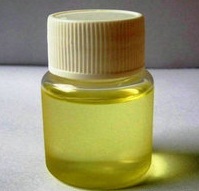Difference between revisions of "Aniseed Oil"
| Line 7: | Line 7: | ||
| risk factors = Not classified as hazardous for transport. | | risk factors = Not classified as hazardous for transport. | ||
}} | }} | ||
| + | __TOC__ | ||
==Description/application== | ==Description/application== | ||
[[Essential oils]] are volatile and liquid aroma compounds from natural sources, usually [[plants]]. Essential oils are not oils in a strict sense, but often share with oils a poor solubility in water. Essential oils often have an odour and are therefore used in food flavouring and perfumery. Essential oils are usually prepared by fragrance extraction techniques such as distillation (including steam distillation), cold pressing, or extraction (maceration). Essential oils are distinguished from aroma oils (essential oils and aroma compounds in an oily solvent), infusions in a vegetable oil, absolutes, and concretes. Typically, essential oils are highly complex mixtures of often hundreds of individual aroma compounds.<br><br> | [[Essential oils]] are volatile and liquid aroma compounds from natural sources, usually [[plants]]. Essential oils are not oils in a strict sense, but often share with oils a poor solubility in water. Essential oils often have an odour and are therefore used in food flavouring and perfumery. Essential oils are usually prepared by fragrance extraction techniques such as distillation (including steam distillation), cold pressing, or extraction (maceration). Essential oils are distinguished from aroma oils (essential oils and aroma compounds in an oily solvent), infusions in a vegetable oil, absolutes, and concretes. Typically, essential oils are highly complex mixtures of often hundreds of individual aroma compounds.<br><br> | ||
Revision as of 14:27, 3 October 2012
| Infobox on Aniseed Oil | |
|---|---|
| Example of Aniseed Oil |  |
| Facts | |
| Origin | Shipped from India, Malta, Spain in small lots. |
| Stowage factor (in m3/t) | 1,39 m3 (tins in cases) |
| Humidity / moisture | - |
| Ventilation | - |
| Risk factors | Not classified as hazardous for transport. |
Aniseed Oil
Description/application
Essential oils are volatile and liquid aroma compounds from natural sources, usually plants. Essential oils are not oils in a strict sense, but often share with oils a poor solubility in water. Essential oils often have an odour and are therefore used in food flavouring and perfumery. Essential oils are usually prepared by fragrance extraction techniques such as distillation (including steam distillation), cold pressing, or extraction (maceration). Essential oils are distinguished from aroma oils (essential oils and aroma compounds in an oily solvent), infusions in a vegetable oil, absolutes, and concretes. Typically, essential oils are highly complex mixtures of often hundreds of individual aroma compounds.
- Agar oil or oodh, distilled from Agarwood (Aquilaria malaccensis). Highly prized for its fragrance.
- Ajwain oil, distilled from the leaves of Bishop’s weed (Carum copticum). Oil contains 35-65% thymol.
- Angelica root oil, distilled from the Angelica archangelica.
- Anise oil, from the Pimpinella anisum, rich odor of licorice, used medicinally.
Shipment/storage
Shipped in metal drums or in tin in cases. Leakage may occur through improperly secured stoppers.
Risk factors
Not classified as hazardous for transport.
Note: Consult the Safety Data Sheet on anise oil for reference.











